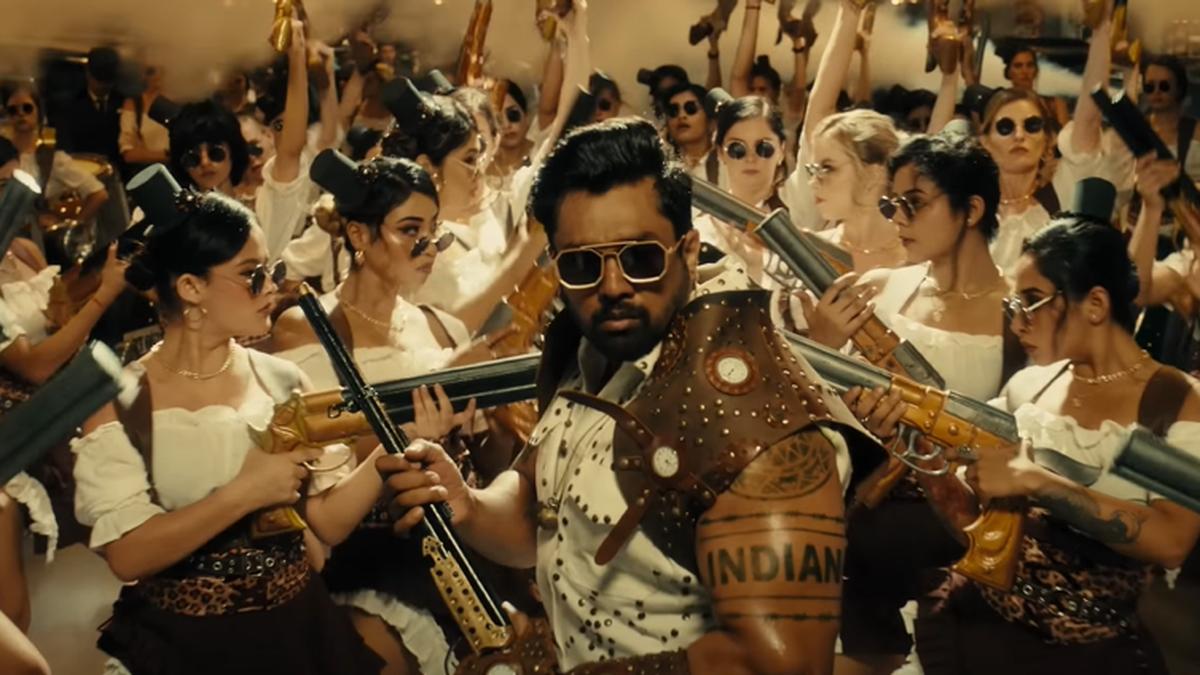
In a dramatic turn of events reflecting the growing tensions between filmmakers and digital content creators, the Kannada movie “Martin,” featuring Dhruva Sarja, has become a controversial topic among YouTube reviewers. Since its release on October 11, 2024, the film, directed by AP Arjun, has ignited a conflict that seems to pit traditional movie production teams against the burgeoning community of online critics. This friction underscores a broader debate about creative expression and critique in the digital age.
“Martin” launched amid the festive celebrations of Dasara, achieving strong initial box office numbers and drawing widespread attention for its action-packed sequences. However, the film also received criticism for the protagonist’s boisterous portrayal, a performance that many found excessive. These criticisms have not only affected the film’s reception but have also sparked retaliation from its production team, leading to an uneasy relationship with the YouTube community.
The controversy intensified when Anmol Jamwal, a well-known figure among film enthusiasts on his YouTube channel Tried & Refused Productions, was reportedly instructed to remove his less-than-favorable review. His commentary labeled “Martin” as the “Worst film of 2024,” a headline that allegedly led the film’s representatives to send a stern warning, threatening a copyright strike unless the video was withdrawn. Anmol expressed disappointment over this demand, criticizing it as “bullying” behavior unprecedented since he began sharing film reviews in 2015.
Simultaneously, another prominent YouTuber, Shan Prasher from Canada, faced similar censure from the “Martin” camp. He accused the filmmakers of not adhering to “YouTube etiquette,” emphasizing the necessity for prior warning before escalating matters to a copyright strike. Prasher, defending his right to free speech, has pursued a legal counter-notification, allowing the filmmakers a ten-day window to respond.
Amidst these developments, Uday K Mehta, the film’s producer, remains steadfast in safeguarding his creation. In interviews, Mehta has cited a John Doe order, a legal tool permitting action against any entity perceived to damage the film’s commercial success.
. According to Mehta, these legal measures are essential to protect not only the film’s earnings but also its integrity against unfounded or malicious criticisms.
The drama doesn’t stop with legalities. Sudhakar Gowda, a Kannada YouTube creator, has also experienced backlash, facing threatening calls from Dhruva Sarja’s fans after his negative review was posted. Gowda argues for his right to express his opinion, as consumers should be able to critique what they have financially supported through ticket purchases. Like other reviewers, he denounced the film as a derivative attempt to emulate the success of blockbuster hits like “KGF,” criticizing Sarja’s performance as overly flamboyant.
In defense, director A P Arjun has spoken against the proliferation of ‘paid reviews,’ alleging similar issues as seen in the Malayalam film industry. Arjun argues for fair critiques grounded in insightful analysis rather than superficial observations or inflammatory language meant to draw views. He stresses the creative and financial effort invested in filmmaking, urging reviewers to maintain objective and civilized discourse.
The reverberations of this incident highlight broader challenges within the film industry as it grapples with the rise of digital media. Veteran critic Kairam Vaashi points out the balance needed between protecting creative acts and allowing critical reviews that are vital for artistic growth. He acknowledges the producer’s stance but cautions against oppressive tactics that may stifle legitimate critique.
This unfolding saga may necessitate dialogue around the ethics of film criticism in the digital era. Industry practitioners and audiences alike have been polarized, some advocating for filmmakers to accept feedback constructively while others demand regulations that buffer creators from potential misuse of digital platforms by critics. As “Martin” continues to be a hot topic, it underscores the necessity for a sustainable and mutually respectful relationship between filmmakers and digital reviewers.












